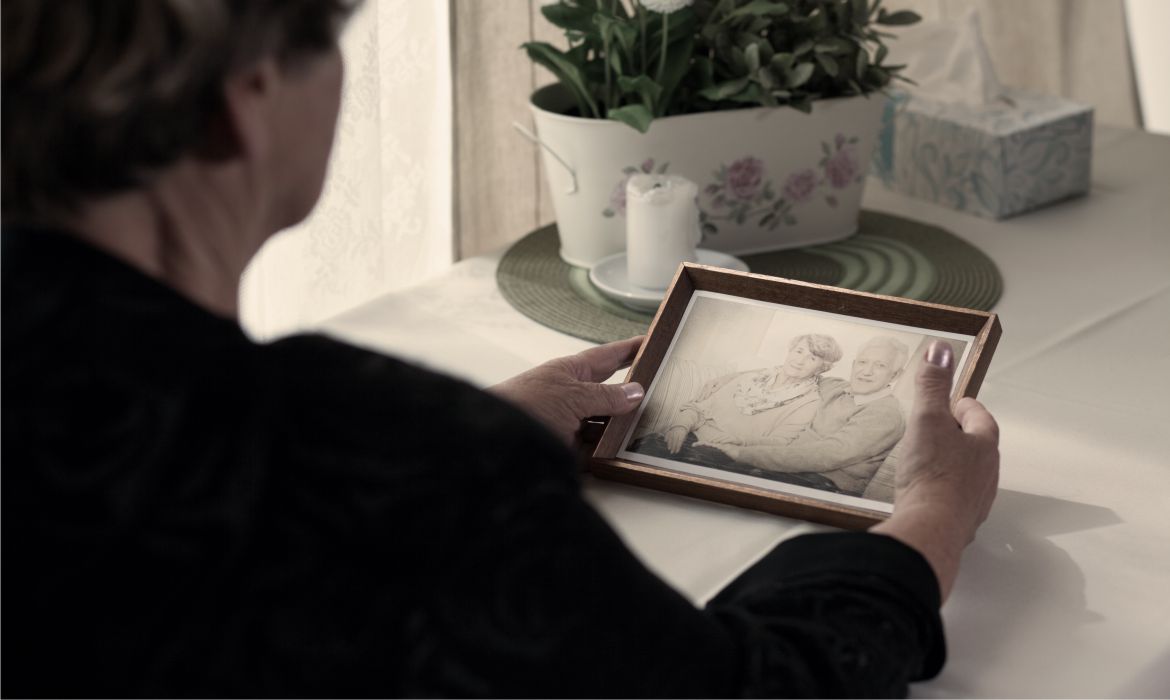
Bereavement there’s no right or wrong way to grieve and there’s no telling how long it may take. There are different types of bereavement and loss, with different effects. Counselling helps in working through your grief and coming to terms with your loss.
There are some key stages and feelings that come up for an individual, a family, a nation when encountering the process of dying, death, loss and major change.
When someone you love dies you might be finding it very difficult to adjust to the immense changes happening in your life. Losing someone close to you is one of the saddest and most painful experiences you can go through. You may feel as though the rug has been pulled from under you, and it can be difficult to contemplate what life will be like without your loved one.
Grief can shake everything up, your beliefs, your personality, and even your sense of reality. You may need time to be alone, however be aware of isolating yourself during this time. The process of grieving is a very sacred time and must be honoured individually.
Bereavement is the time we spend adjusting to loss. There is no standard time limit and there is no right or wrong way to feel during the bereavement period everyone must learn to cope in their own way.
Grief, although normal, can manifest in a huge range of unexpected ways. Some people get angry, some people withdraw further into themselves and some people become completely numb. Sometimes, grief can turn into depression.
Bereavement counselling may be able to provide support during these very difficult times. Talking about the loss often allows a person to adjust to their new life with all its changes, good and bad. Keeping things bottled up or denying the sadness could prolong the pain. Any loss needs to be acknowledged for us to move forward. Bereavement counselling tries to help clients find a place for their loss so they can carry on with life and eventually find acceptance.
When grieving due to a loss or bereavement there are considered, to be 5 stages:
Denial is the first of the five stages of grief. It helps us to survive the loss. In this stage, the world becomes meaningless and overwhelming. Life makes no sense. We are in a state of shock and denial. We go numb. We wonder how we can go on, if we can go on, why we should go on. We try to find a way to simply get through each day. Denial and shock help us to cope and make survival possible.
Anger is a necessary stage of the healing process. Be willing to feel your anger, even though it may seem endless. The more you truly feel it, the more it will begin to dissipate and the more you will heal. Anger is the emotion we are most used to managing. The truth is that anger has no limits. It can extend to your friends, the doctors, your family, yourself and your loved one who died. Underneath anger is pain, your pain. It is natural to feel deserted and abandoned, but we live in a society that fears anger. We usually know more about suppressing anger than feeling it. The anger is just another indication of the intensity of your love.
The bargaining stage is characterised by attempting to negotiate with a higher power or someone or something you feel, whether realistically or not, that has some control over the situation. You may make promises to God in return for the painful situation not to occur or for things to go back to how they were before the loss or change, according to Kubler-Ross and David Kessler. In the bargaining stage, you may find yourself intensely focused on what you or others could have done differently in order, to prevent the loss or change. You may also think about all the things that could have been and how wonderful life would have been if not for this unpleasant situation. While these thoughts may help, you begin to accept the loss or change by revealing the impact of the situation, these feelings can also lead to remorse and guilt that interfere with healing.
Depression is a very likely outcome for all people that grieve for a loss. This is what I would consider the most difficult stage of the five to deal with. Empty feelings present themselves, and grief enters our lives on a deeper level, deeper than we ever imagined. This depressive stage feels as though it will last forever. It’s important to understand that this depression is not a sign of mental illness. It is the appropriate response to a great loss. We withdraw from life, left in a fog of intense sadness, wondering, perhaps, if there is any point in going on alone? Why go on at all? Depression after a loss is too often seen as unnatural, a state to be fixed, something to snap out of. The first question to ask yourself is whether or not the situation you’re in is actually depressing. The loss of a loved one is a very depressing situation, and depression is a normal and appropriate response. To not experience depression after a loved one dies would be unusual. When a loss fully settles in your soul, the realisation that your loved one didn’t get better this time and is not coming back is understandably depressing. If grief is a process of healing, then depression is one of the many necessary steps along the way.
Acceptance is often confused with the notion of being “all right” or “OK” with what has happened. This is not the case. Most people don’t ever feel OK or all right about the loss of a loved one. This stage is about accepting the reality that our loved one is physically gone and recognizing that this new reality is the permanent reality. We will never like this reality or make it OK, but eventually we accept it. We learn to live with it. It is the new norm with which we must learn to live. We must try to live now in a world where our loved one missing. In resisting this new norm, at first many people want to maintain life as it was before a loved one died. In time, through bits and pieces of acceptance, however, we see that we cannot maintain the past intact. It has been forever changed and we must readjust. We must learn to reorganise roles, re-assign them to others or take them on ourselves. Finding acceptance may be just having more good days than bad ones. As we begin to live again and enjoy our life, we often feel that in doing so, we are betraying our loved one. We can never replace what has been lost, but we can make new connections, new meaningful relationships, new inter-dependencies. Instead of denying our feelings, we listen to our needs; we move, we change, we grow, we evolve. We may start to reach out to others and become involved in their lives. We invest in our friendships and in our relationship with ourselves. We begin to live again, but we cannot do so until we have given grief its time.
Bereavement and Loss Counselling
Counselling aims to get you to the point where you can function normally - however long it takes. One day, you may be able to find happiness again. By creating a place to keep the person you lost, and finding ways to remember them (like anniversary celebrations, or leaving flowers at a memorial site), you should be able to preserve their memory and honour the impact they had on your life, without letting their absence obscure your own future.
Other Counselling Services

School and College Counselling
Quality AssuranceI am qualified Counsellor / Psychotherapist11 years experience working with and counselling children and...
Read More
Individual and Group Supervision
I am a qualified Clinical Supervisor who offers individual and group supervision to professionals ranging from students in...
Read More